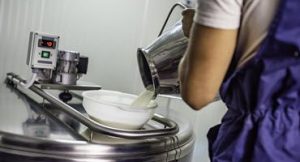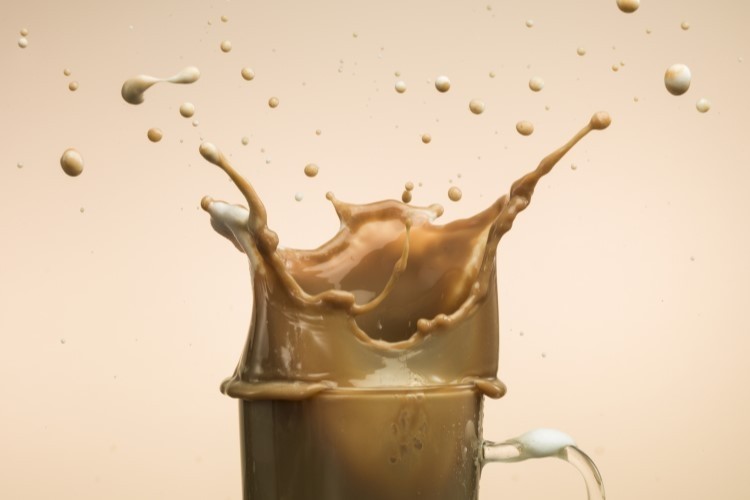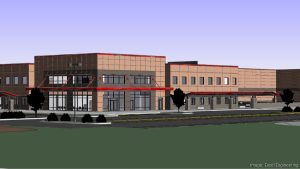
AnaBio Technologies isn’t new to the business of microencapsulation, but its patented technology – which allows live probiotics to survive heat-treatment such as UHT – continues to make headlines in the food industry and beyond.
The Ireland-based company, founded in 2011 by Dr. Sinéad Bleiel, has recently opened a factory in Cork, where it is producing at commercial scale its portfolio of microencapsulated solutions, from live probiotics to bioactives such as vitamins and proteins.
The company also partnered with Eurofins to validate an enumeration technique based on flow cytometry, which is a ‘very quick and accurate method of measuring the [viable microencapsulated] probiotics’. In addition, AnaBio has further improved its probiotics offering from the original 1×108 CFU (colony forming units) per dose to 1×109, i.e. one billion CFU per dose. At a cost of around €0.02 per serving, the solution is ‘commercially viable and an attractive proposition to our clients,’ according to company CEO, Dr. Aidan Fitzsimons.
“If we look at the probiotic beverage market, our estimate is that 1.5-2% of that are probiotic beverages,” he told DairyReporter. “If we could release the probiotic beverages from the fridge, the untapped market potential is huge. By taking away the refrigeration, you are reducing cost, making distribution much easier, and making the delivery of probiotic beverages much more sustainable.”
A new type of consumer can be reached this way, too, according to Dr. Fitzsimons: “Probiotics beverages are almost always refrigerated, of short shelf-life, and of limited appeal to the on-the-go, convenience lifestyle consumer. You can’t throw one in your car, leave it there and drink it later, because it would have gone off.”
“We are bringing that health and wellness concept of probiotics, but we are also getting that product out of the fridge. That has a benefit from a cost and sustainability perspective, and also in terms of reaching a much broader market.”
Dr. Fitzsimons claims that the market could reach a valuation of €50bn ($53.9bn) in three to five years. “That’s based on where the ready-to-drink (RTD), the energy drink markets are,” he explained. “Of course, it would take a few years to get to that level, but this is the kind of potential that we are seeing commercially from our product in terms of where the [probiotic beverage] market could go in the medium term.”
In terms of the company’s USP, while there are other heat-stable probiotics on the market, such as spore-formers, Fitzsimons said that to his knowledge, no other firm had ‘cracked that where you can offer live probiotic that is stable in a beverage at ambient temperature’.
Fortified dairy is ‘three to six months out’
Speaking to DairyReporter, Dr. Fitzsimons revealed that AnaBio is working with clients from around the globe, with the company seeing a lot of interest from the US, Australia – particularly on the probiotic beverage front – and some Asian dairy companies. While the AnaBio CEO declined to disclose any client names, he explained the firm was working with ‘a wide range of beverage manufacturers’.
“There are a number of innovative, dynamic clients that are anxious to move this product in their market and thus gain a first-mover advantage,” he said. “We are also seeing that a number of larger brands are engaging with us in larger projects to further understand the tech to their particular circumstances and fine-tune it for their needs.”
On the dairy side, RTD beverages are more likely to launch first, according to Dr. Fitzsimons. “The dairy products need another 3-6 months,” he estimated. “We are working with some large brands, who need to work through the process and make sure that all internal checks and balances are completed before they go on to a launch. So those launch timetables are probably 3-6 months out.”
Asked about the process of creating an RTD dairy beverage containing AnaBio’s microencapsulated probiotic, Dr. Fitzsimons said the procedure is ‘very similar’ to traditional RTD manufacturing.
“The only difference is that, because you’re adding the probiotic in relatively small quantities, it would be ideal if you could create some sort of a pre-mix – with some sort of microingredients, e.g. vitamins or minerals – and then pop that into the larger flow of raw material.”
While manufacturers have already succeeded in formulating probiotics-fortified dairy products – such as Dairy Farmers of America’s recently-released UHT milk – AnaBio’s microencapsulated solution can survive at 140°C/284°F, meaning that the ingredient can be added before the heat treatment. “The product can be added in the ingredient mix before any heat treatment,” confirmed Dr. Fitzsimons. “It then passes through heat treatment; the probiotics retain their viability and are shelf-stable in the beverage at ambient temperature for a typical storage period of 10-12 months.”
This simplifies the manufacturing process and improves safety, he added. “From a food safety perspective, you are very safe in the knowledge that everything that’s been added in your product has been heat-treated,” Dr. Fitzsimons added. “There is always some degree of risk when you are adding something after the heat treatment.”
When consumed, the probiotic travels through the stomach and is released when its protective protein coating is broken down in the intestine.
From beverages to gummies and protein bars
While the company’s current focus is on the beverage industry, AnaBio’s Aidan Fitzsimons admitted that other products, such as ambient yogurt or infant formula, could be candidates for fortification with the company’s microencapsulated probiotics. “The only reason we’ve focused on the beverage market is because the opportunity there is so great, because of the sheer size of the market,” he said.
“But…there are many other applications out there, such as gummies or infant formula. We’ve even had clients looking at putting [microencapsulated probiotics] into protein bars.”
For now, however, the company’s focus is on assisting clients in getting their first products into the market. “We are only beginning to launch into that space, so this is pretty much a virgin territory,” he said. “We are focused on partnering with our customers to help them get their products to market and to supply our product to others.”




















